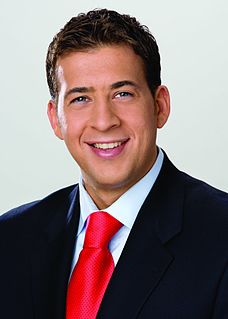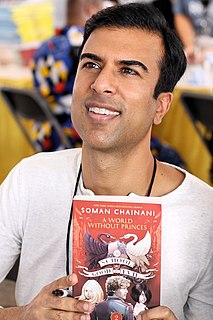A Quote by Rick Riordan
For me, writing for kids is harder because they're a more discriminating audience. While adults might stay with you, if you lose your pacing or if you have pages of extraneous description, a kid's not going to do that. They will drop the book.
Related Quotes
Kids, if anything, are harder to write for because they are a more discerning audience. They will not stay with you if you go off on a tangent or if you give them extraneous information that doesn't serve the story. You really have to tell a tight story. You have to give them humor and suspense and believable characters. All those things that adults want too, but you have to be really on your game when you're writing for kids.
The StarTalks - while kids can watch them, they're actually targeted at adults. Because adults outnumber kids five to one, and adults vote, and adults wield resources, and adults are heads of agencies. So if we're going to affect policy, or affect attitudes, for me, the adults have always been the target population.
It will seem as if you were making the visions banal — but then you need to do that — then you are freed from the power of them Then when these things are in some precious book you can go to the book and turn over the pages and for you it will be your church — your cathedral — the silent places of your spirit where you will find renewal. If anyone tells you that it is morbid or neurotic and you listen to them — then you will lose your soul — for in that book is your soul.
I think it's more difficult writing what it's like to be a child. You can pretend you know what it's like, but you don't really know. The only parts I can remember is that the adults were like, "Aren't they cute?" But when you're little you're looking at the other kids like they're your colleagues. They're not like, "Oh, we're all cute little kids." They're more like your office acquaintances. It's very hard to grasp the memories of what it actually was like to be a kid.
Let's say I've directed that [writing] energy into writing my latest book but suddenly, I really want to write about an onion. I don't say to myself, "No, you have stay on the subject," because I know that the longer I stay on the subject the more boring I get. So, if my mind wants to write about an onion, it might be a deeper way to go into what I'm working on, even though it might seem irrelevant. This is how I've learned to follow my mind.
I never think of my work as writing for a young audience, frankly, because I think it risks talking 'down' to them. The idea is for these books to work just as well as for adults as kids. As for what readers will take away, I just want them to love being in the world and see it as a safe place to explore things that adults are often uncomfortable talking to them about.
Kids need to know more than just about unicorns and zombies and vampires. The rhetoric that's coming out is anti-black, anti-Mexico, anti-diversity. [Adults] definitely need to put it in context. I've talked to people who are literally struggling to sleep because they're anxious. Children pick up on that. Talk to your kid. Tell them, "this is what's bothering me." Explain that what's going on is unacceptable.































